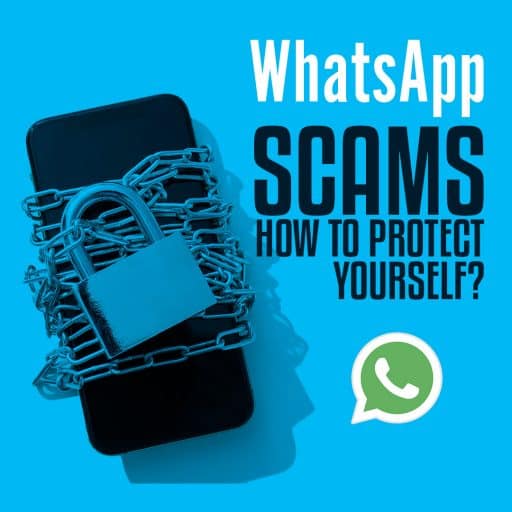TikTok Blackmail: What to Do If You’re Being Blackmailed
TikTok is a popular hub for bite-sized entertainment that attracts a massive user base of over a billion people. Makeup tutorials, dance trends, and cat videos are just a few forms of content available. However, beneath the surface of the feel-good atmosphere lies a darker reality – scammers have infiltrated the platform, using various tactics to exploit the trust and naivety of viewers. This article sheds light on the most common scams and provides you with the knowledge to navigate this viral world cautiously. So, before you immerse yourself in the next captivating scroll, take a moment to learn how to protect yourself from becoming the next target in TikTok’s ever-evolving game of deceit.
What is TikTok Blackmail and How It Works
TikTok scams are diverse and widespread, from phishing links disguised as harmless challenges to elaborate romance schemes. Here is a detailed list of the most common and well-known TikTok scams to watch out for:
- Fake Verification and Followers: Be wary of links and apps promising account verification or free followers—they often steal your login credentials.
- Impersonation: Scammers pose as celebrities, brands, or friends to promote scams or trick you into clicking malicious links.
- Money Scams: Watch out for money-flipping schemes, fake charities, and promises of easy rewards—you’ll likely lose money or personal information.
- Phishing: Fake opportunities, login pages, and links can steal your account information or infect your device with malware.
- Adult Content Scams: Accounts offering adult content often steal personal and banking information or lead to spyware and malware.
- Counterfeit Goods: Discounted designer items are often scams that deliver cheap knockoffs.
- Malicious Apps: Fake accounts promote scam apps that infect devices, steal data, spam ads, and slow down phones.
What to Do if Someone Blackmails You on TikTok
TikTok is committed to removing any content and users that exploit the trust of our users for personal gain, including scam-related content. The app has a comprehensive set of community guidelines and policies that aim to protect users and keep malicious users at bay. While policies cover scams, they do not specifically address blackmail. Although TikTok can ban accounts, blackmailers can easily create new accounts and continue with cyber extortion. If you become a victim, it’s essential to take immediate action. Here are steps to take to fight blackmail:
- Report the fraudulent account and any phishing links to TikTok and the local authorities to alert moderators and potentially get them removed.
- Contact your bank’s fraud department to report potential scams and monitor your credit.
- Consider hiring a digital specialist for reputation and privacy protection in blackmail cases.
- Review linked accounts on your profile and remove any unfamiliar connections.
- Reset passwords on other accounts and use unique, complex passwords for each one.
Avoid being a target.
Sticking to legitimate TikTok accounts from recognized creators, brands, and organizations is the best way to avoid encountering scams on the platform. Here are vital tips to follow:
- Enable two-factor authentication: This adds an extra layer of protection to your account by requiring a code from your phone and your password when logging in from a new device.
- Don’t click direct links: Instead of clicking links sent in messages or comments, manually type the URL into your browser to avoid potential scams.
- Beware follow/like farming: Offers of free followers or likes are often scams that can harm your account. Focus on building a genuine audience organically.
- Customize privacy settings: Limit who can see your content, send messages, and comment on your videos.
- Report suspicious behavior: Help keep TikTok safe by reporting any scams, fraud, or inappropriate content you encounter.
- Keep software updated: Ensure your devices have the latest security patches and antivirus software to reduce malware risks.
- Avoid oversharing: Be cautious about posting personal information publicly on your profile or in comments. Scammers can use this information to target you.
- Look for verification badges: Official checkmarks on larger brand, celebrity, and organization accounts confirm legitimacy. Be wary of accounts that lack verification.
While navigating the vibrant world of TikTok, remember that the fun doesn’t have to come at the cost of your safety.
By adopting a conscious approach, prioritizing awareness over impulsive clicks, and reporting even the slightest hint of foul play, you can transform this platform into a playground of joy without fear. So, scroll, laugh, and create; just do it with a vigilant eye, for behind the filter-fueled facade of viral trends, a digital guardian angel awaits, armed with knowledge and ready to guide you.
Remember, you’re not alone; this community champions safety, and with a dash of caution and a healthy dose of awareness, you can continue to dance to the tune of positivity, leaving the scammers wondering how their tricks failed to captivate their next victim. Stay safe, stay informed, and most importantly, keep enjoying the endless possibilities within TikTok’s vibrant confines.






